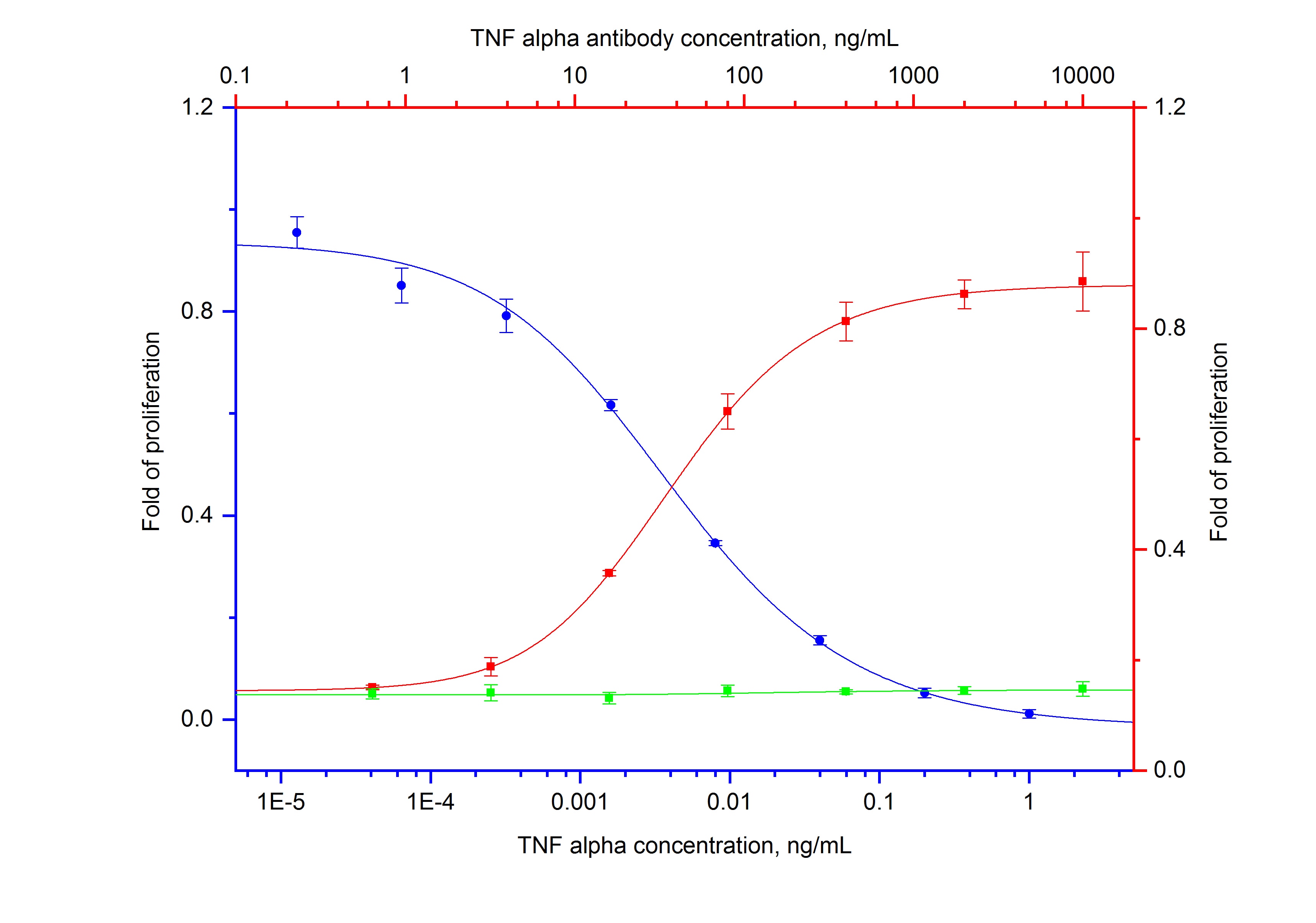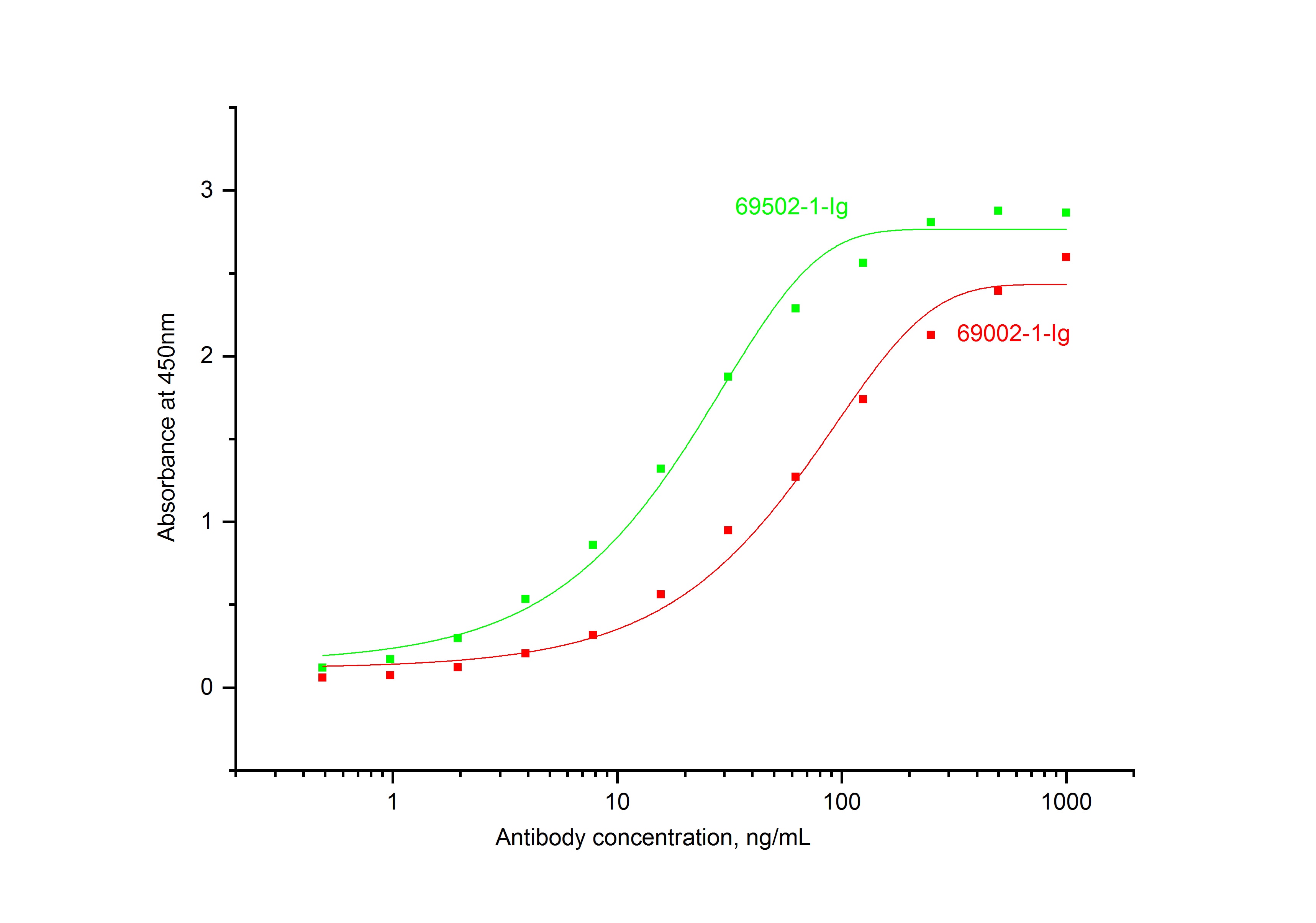Anticorps Monoclonal anti-NeutraKine® TNF-alpha
NeutraKine® TNF-alpha Monoclonal Antibody for Neutralization, ELISA
Hôte / Isotype
Mouse / IgG1
Réactivité testée
Humain, souris
Applications
Neutralization, ELISA
Conjugaison
Non conjugué
CloneNo.
11H8A5
N° de cat : 69002-1-Ig
Synonymes
Galerie de données de validation
| Neutralization |
Informations sur le produit
69002-1-Ig cible NeutraKine® TNF-alpha dans les applications de Neutralization, ELISA et montre une réactivité avec des échantillons Humain, souris
| Réactivité | Humain, souris |
| Hôte / Isotype | Mouse / IgG1 |
| Clonalité | Monoclonal |
| Type | Anticorps |
| Immunogène | human Humankine TNF-alpha protein HZ-1014 |
| Nom complet | tumor necrosis factor (TNF superfamily, member 2) |
| Symbole du gène | TNF-alpha |
| Identification du gène (NCBI) | 7124 |
| Conjugaison | Non conjugué |
| Forme | Lyophilized Powder |
| Méthode de purification | Purification par protéine G |
| Tampon de stockage | Sterile PBS |
| Endotoxin | <0.1 EU/μg |
| Reconstitution | This product was lyophilized from a 0.2 μm filtered solution in PBS. Reconstitute at 1.0 mg/mL in sterile H2O before use. |
| Stability and Storage | Lyophilized antibodies are stable for 1 year from the date of receipt if stored between (-20°C) and (-80°C). Upon reconstitution we recommend that the solution can be stored at (4°C) for short term or at (-20°C) to (-80°C) for long term. Repeated freeze thaw cycles should be avoided with reconstituted products. |
Informations générales
TNF, as also known as TNF-alpha, or cachectin, is a multifunctional proinflammatory cytokine that belongs to the tumor necrosis factor (TNF) superfamily. It is expressed as a 26 kDa membrane bound protein and is then cleaved by TNF-alpha converting enzyme (TACE) to release the soluble 17 kDa monomer, which forms homotrimers in circulation. It is produced chiefly by activated macrophages, although it can be produced by many other cell types such as CD4+ lymphocytes, NK cells, neutrophils, mast cells, eosinophils, and neurons. It can bind to, and thus functions through its receptors TNFRSF1A/TNFR1 and TNFRSF1B/TNFBR. This cytokine is involved in the regulation of a wide spectrum of biological processes including cell proliferation, differentiation, apoptosis, lipid metabolism, and coagulation. This cytokine has been implicated in a variety of diseases, including autoimmune diseases, INS resistance, and cancer.
This antibody can be used to neutralize the bioactivity of TNF alpha.
Publications
| Species | Application | Title |
|---|---|---|
Cell Mol Gastroenterol Hepatol Fatty Acid Oxidation Promotes Apoptotic Resistance and Proinflammatory Phenotype of CD4+ Tissue-resident Memory T cells in Crohn's Disease | ||
Int J Mol Sci Cancerous Conditions Accelerate the Aging of Skeletal Muscle via Mitochondrial DNA Damage |



